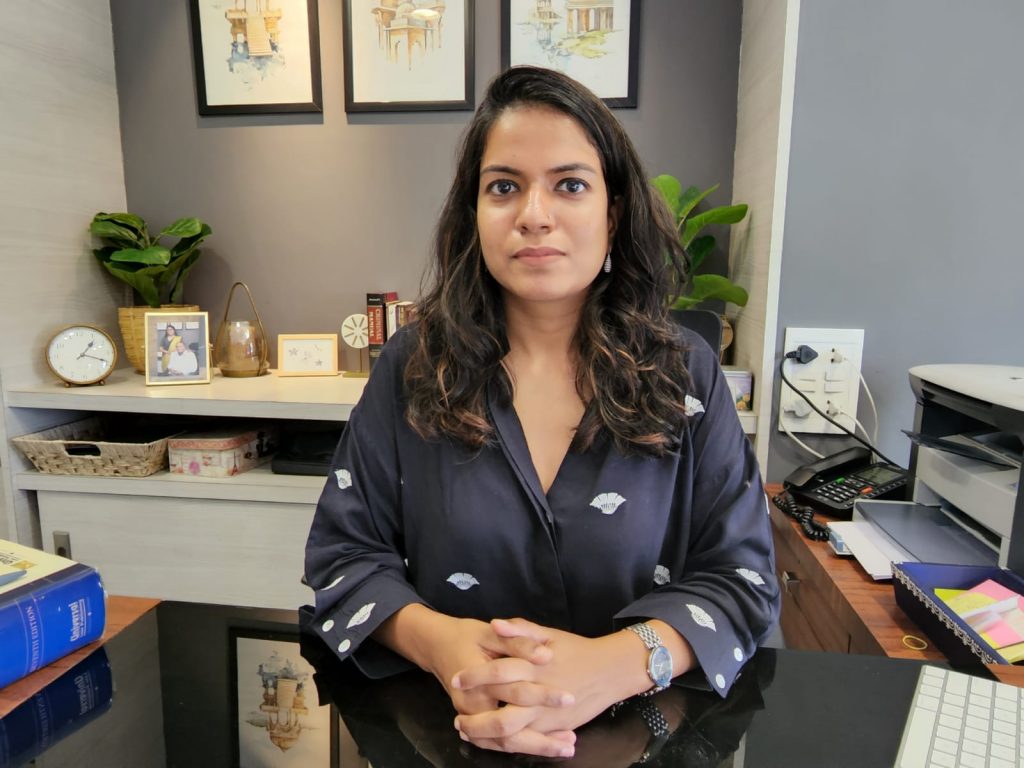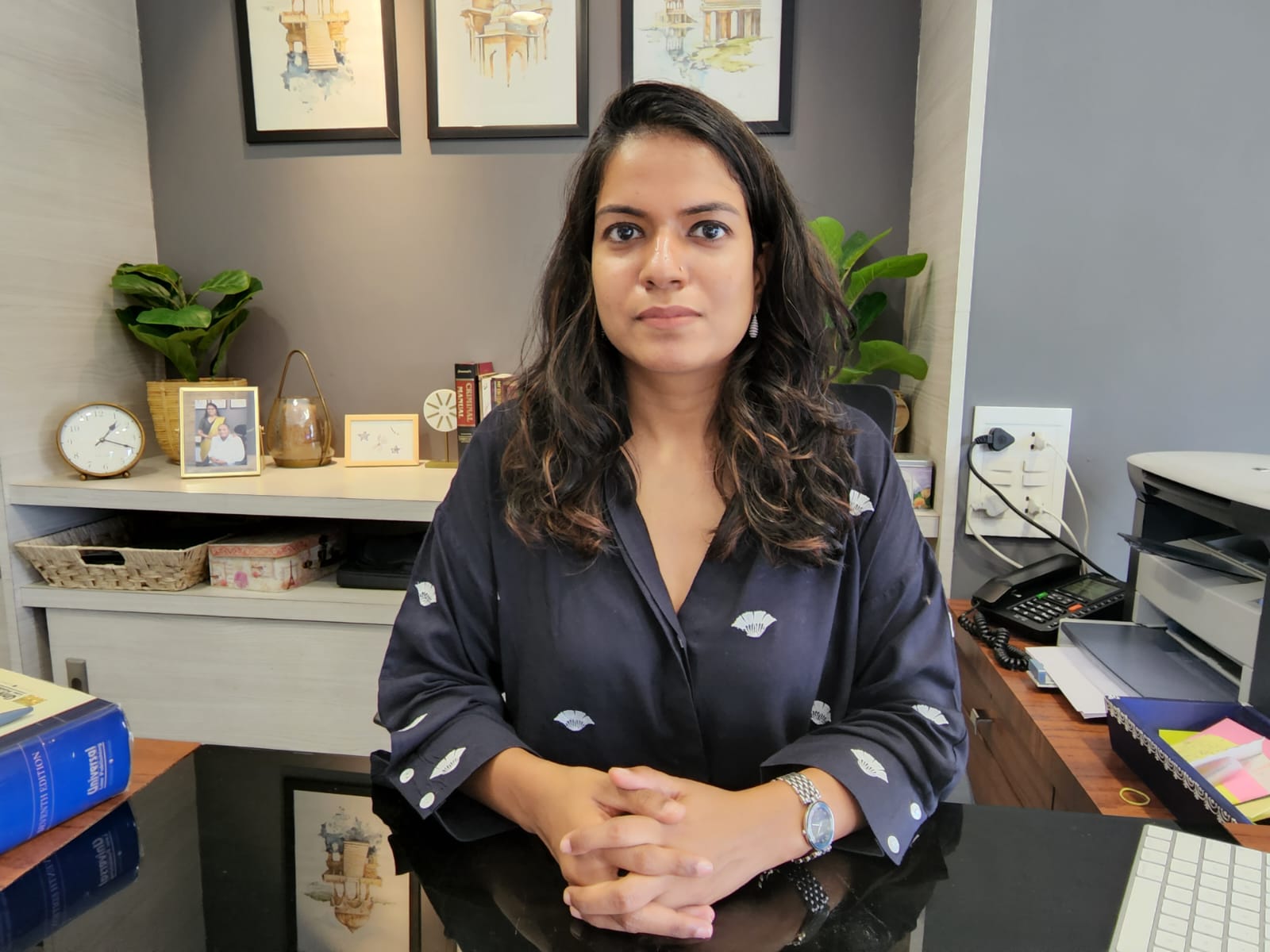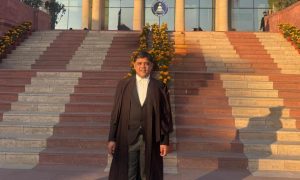This interview has been published by Anshi Mudgal and The SuperLawyer Team

Looking back at your career and the successful practice you’ve built today, what were the key experiences that initially led you toward pursuing law? What moments or influences made you choose law as a career? Additionally, how did your time at NLU Gujarat shape and deepen your passion for the field?
I was drawn to law after witnessing how legal complexities often overwhelmed individuals and businesses, creating unnecessary barriers to their goals. A defining moment came during my undergraduate years when I saw a family dispute escalate simply due to lack of proper legal guidance. This showed me that law isn’t just about statutes, but about people and relationships.
NLU Gujarat was transformative. The practical learning approach, diverse legal exposure through moot courts and internships, and exceptional faculty mentorship developed the critical thinking skills that guide my practice today. The institution’s emphasis on real-world application deepened my understanding of law’s potential to create positive change.
In the early years of your practice, what experiences helped you build a stronger understanding of the law and laid the foundation for your career? Could you share some key lessons from that period that would benefit our young readers?
Working across different practice areas initially provided invaluable insights into how various legal disciplines intersect. A pivotal experience was advising a struggling startup on restructuring, which required understanding corporate law, employment regulations, and tax implications simultaneously teaching me that modern legal practice demands interdisciplinary expertise.
Key lessons for young practitioners: embrace every learning opportunity regardless of how mundane it seems; develop strong communication skills to translate complex legal concepts into actionable business advice; build relationships based on trust and transparency; and stay curious; the law evolves constantly, and successful practitioners evolve with it.
What inspired you to establish your own practice? What were some of the challenges you faced in the beginning, and how did you navigate those obstacles?
I wanted to create a practice that delivered personalized, innovative legal solutions while maintaining the highest ethical standards combining the expertise of larger firms with the agility and client focus of boutique practices.
Initial challenges included building credibility, establishing a client base, and managing financial constraints while maintaining service quality.
I navigated these through strategic relationship building, delivering exceptional results on smaller matters to build credibility, and focusing on becoming specialists in chosen practice areas rather than trying to be everything to everyone. We never compromised on quality to win business – a principle that ultimately distinguished us in the market.
Cross-border transactions often involve navigating multiple legal frameworks and jurisdictions. How do you manage the complexities of these deals? What are the critical legal considerations businesses must keep in mind when engaging in cross-border transactions, and how do you ensure compliance with international legal standards while advising clients?
We manage complexity through systematic due diligence across all relevant jurisdictions, collaborating with trusted local counsel worldwide. Our framework maps regulatory requirements, tax implications, and compliance obligations for each jurisdiction involved.
Critical considerations include foreign investment regulations, tax treaty implications, currency exchange controls, sector-specific restrictions, dispute resolution mechanisms, and enforcement challenges across different legal systems.
We ensure compliance through jurisdiction-specific checklists, regular regulatory updates, and maintaining relationships with qualified local counsel. Our approach emphasizes early identification of potential conflicts between legal systems and structuring transactions to minimize regulatory friction while ensuring comprehensive documentation that anticipates cross-jurisdictional enforcement challenges.
With the evolving landscape of CSR compliance, what trends do you foresee emerging in the near future? Additionally, could you share how you guide clients in aligning their CSR strategies with both domestic and international laws?
Emerging trends include mandatory climate disclosures, supply chain responsibility requirements, and stakeholder-centric reporting. We’re seeing convergence between ESG standards and domestic CSR requirements, with increased focus on measurable impact assessment and integration with business strategy.
We guide clients by conducting comprehensive assessments of applicable domestic and international obligations, then developing CSR strategies that exceed minimum compliance while creating genuine business value. Our approach emphasizes robust documentation, impact measurement systems, regular compliance audits, and integration of CSR considerations into business decision-making processes.
Start-ups face several challenges when it comes to establishing their legal foundations. What are the most common legal hurdles that start-ups should address early on? How do you assist them with crucial aspects like intellectual property rights, employee agreements, and business structuring?
Common hurdles include inadequate business structuring, insufficient IP protection, poorly drafted founder and employee agreements, and underestimating regulatory compliance requirements.
Our approach begins with comprehensive business structure analysis considering investment plans, tax efficiency, and regulatory requirements. For IP, we conduct thorough audits and establish protection strategies including trademark registrations and robust confidentiality frameworks. Employee agreements require balancing company protection with talent attraction—we draft comprehensive contracts and establish equity participation frameworks.
We emphasize establishing good governance practices early, including board structures, decision-making processes, and compliance systems that become crucial as startups scale.
Given your expertise in handling family estate disputes, what aspects of family law do you feel need more focus or reform? How do you approach succession planning for high-net-worth families, especially when dealing with complex cross-border elements?
Family law needs greater focus on alternative dispute resolution and preventive legal structures. The current system often exacerbates conflicts rather than resolving them constructively.
For high-net-worth succession planning, we begin with comprehensive family and asset mapping, then develop flexible structures adaptable to changing circumstances. Cross-border elements require careful jurisdiction selection, appropriate trust structures, and documentation that anticipates enforcement issues across different legal systems.
Our methodology emphasizes family governance frameworks including family constitutions, communication protocols, and dispute resolution mechanisms, with regular plan updates to reflect changing family circumstances and regulatory environments.
Trust formation is often a delicate issue, especially for business families. Could you elaborate on your approach to setting up trusts and advising clients on succession planning? What are some common misconceptions businesses or individuals might have about trust formation, and how do you address these?
Our approach begins with thorough understanding of family dynamics, business structures, and long-term goals, then designing flexible trust structures that serve multiple purposes while maintaining adaptability.
Common misconceptions include believing trusts provide absolute asset protection, assuming trust formation means loss of control, and underestimating ongoing compliance requirements. Many don’t understand differences between trust types and their specific applications.
We address these through comprehensive education about trust mechanics, clear explanation of rights and obligations, and realistic assessment of benefits and limitations. For business families, we focus on structures facilitating business continuity while providing appropriate family financial security, often involving multiple trust vehicles and governance frameworks for family participation in business decisions.
Your commitment to fostering diversity in the legal profession is commendable. How do you ensure aspiring lawyers have the mentorship and opportunities they need within your firm? What qualities do you look for when mentoring young lawyers, and what advice do you offer them as they navigate the legal profession?
We ensure opportunities through inclusive hiring practices, structured mentorship programs pairing senior and junior lawyers across practice areas, meaningful work assignments, and regular professional development workshops.
In mentoring, I look for intellectual curiosity, ethical grounding, strong communication skills, and resilience. Technical skills can be taught, but these fundamental qualities determine long-term success.
My advice focuses on building strong foundational skills, maintaining ethical standards regardless of pressure, developing business acumen alongside legal expertise, and understanding that successful careers are built on relationships and reputation. Most importantly, find meaning in your work – legal practice provides unique opportunities to make positive differences in people’s lives.
With your demanding career and leadership role, how do you personally manage work-life balance? Additionally, how do you encourage your team to maintain a healthy balance while excelling in their roles?
I maintain balance through disciplined time management, prioritizing high-impact activities, delegating effectively, and protecting family time. Sustainable success comes from managing energy, not just time.
For the team, we’ve implemented realistic project timelines, adequate staffing, flexible work arrangements where possible, and measure success by results and client satisfaction, not hours worked. We encourage time off and maintain open communication about workload concerns.
Most importantly, I model healthy balance myself. Teams take cues from leadership, so demonstrating that it’s possible to excel professionally while maintaining personal well-being encourages others to do the same. We celebrate achievements and recognize that sustainable careers require attention to both professional and personal development.
Get in touch with Purvi Mathur –
























